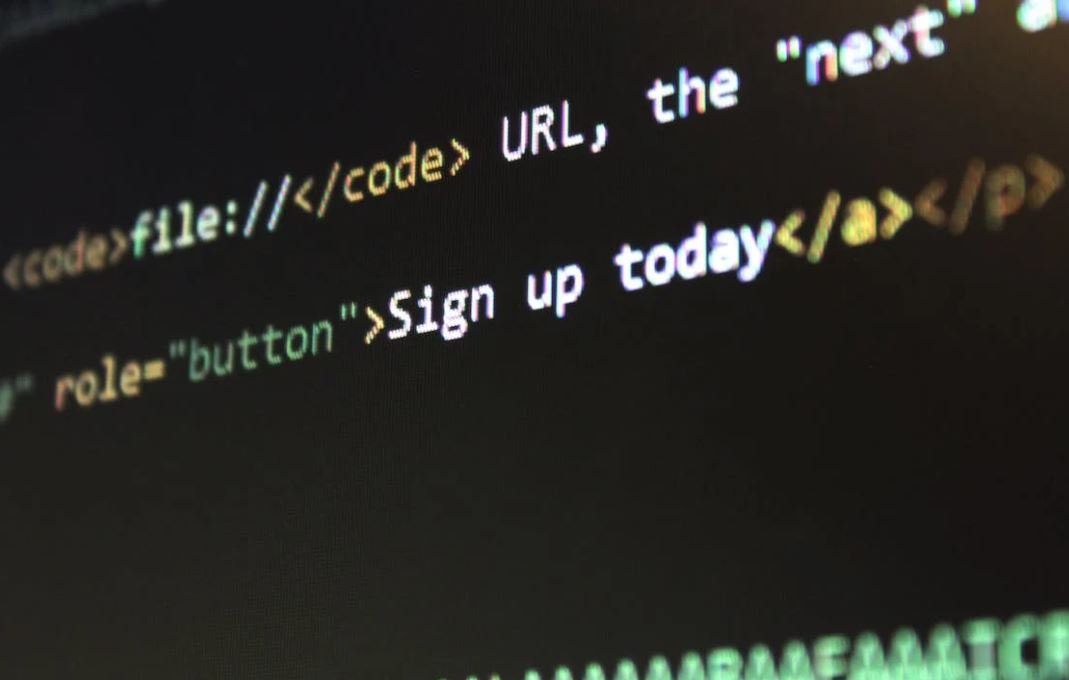Can AI Create Software?
In recent years, artificial intelligence (AI) has made significant advancements in various fields, from healthcare to finance. One intriguing question that arises is whether AI can create software. Traditional software development requires human intervention, but AI has the potential to automate and enhance this process. In this article, we will explore the current capabilities of AI in software creation and discuss its potential impact on the industry.
Key Takeaways:
- AI can automate certain aspects of software development, such as code generation and bug detection.
- AI-assisted software development can improve efficiency and reduce time-to-market for software products.
- Human expertise is still crucial in software development, as AI models may lack domain-specific knowledge.
Artificial intelligence has shown promise in automating certain aspects of software development. Machine learning models can analyze vast amounts of code, learning patterns and common structure styles, to generate new code snippets. By understanding the logic and syntax of programming languages, AI can assist developers in writing code more efficiently. *This AI-powered code generation can significantly reduce development time, especially for repetitive tasks.* However, it is important to note that these models require large amounts of training data and may struggle with complex or abstract programming concepts.
Another area where AI demonstrates its potential is in bug detection and fixing. AI algorithms can analyze code repositories and identify common coding errors or bugs. This can be particularly useful for developers, as identifying and fixing bugs is often a time-consuming and challenging task. AI systems can help automate this process, providing suggestions on potential fixes and improving overall code quality. *With AI’s ability to analyze patterns and spot anomalies, software development can become more robust and less error-prone.*
AI vs. Human Expertise
While AI can supplement and enhance software development processes, human expertise remains essential. AI models lack the contextual understanding and domain-specific knowledge that human developers possess. Several tasks, such as understanding complex business requirements or making strategic decisions during development, involve nuances that AI may struggle to grasp. Therefore, even with advancements in AI, human developers will continue to play a vital role in software creation.
AI-assisted software development serves as a powerful tool for developers, enabling quicker and more efficient coding. However, it is important to strike a balance between automation and human decision-making. Developers can leverage AI to perform routine tasks, freeing up time for more creative problem-solving and innovation. By focusing on higher-level tasks that require critical thinking and in-depth knowledge, developers can effectively harness AI’s potential and maximize its benefits.
The Future of AI in Software Development
The future of AI in software development is promising. As AI algorithms improve, their ability to understand complex programming concepts and adapt to various development environments will enhance significantly. This will lead to more advanced code generation models, capable of producing high-quality code with minimal human intervention. Additionally, the use of AI in bug detection and quality assurance is expected to become more prevalent, improving software reliability and reducing maintenance efforts.
Table 1: Advantages and Disadvantages of AI in Software Development
| Advantages | Disadvantages |
|---|---|
| Automates repetitive tasks | Limited contextual understanding |
| Enhances code quality and reliability | Struggles with complex programming concepts |
| Reduces development time | Dependent on large volumes of training data |
Table 2: Current AI Tools for Software Development
| Tool | Description |
|---|---|
| CodeGPT | An AI model that generates code based on prompts and examples. |
| DeepCode | An AI-powered platform that detects and fixes bugs in code repositories. |
| Kite | An AI-powered coding assistant that provides code completion suggestions and documentation. |
While AI shows remarkable potential in software development, it is important to acknowledge that it is not a substitute for human developers. The synergy between AI and human expertise is crucial in creating innovative and reliable software. As AI continues to evolve, it will undoubtedly transform the way we develop software, making the process more efficient and productive. Developers who embrace AI as a tool and collaborate effectively with intelligent systems will thrive in this ever-evolving technological landscape.

Common Misconceptions
Can AI Create Software?
There are several common misconceptions surrounding the capabilities of artificial intelligence (AI) in creating software. Let’s address and debunk some of these misconceptions:
- AI can replace human programmers entirely.
- AI can generate software without human intervention.
- AI-created software is error-free and perfect.
Firstly, it is important to note that AI cannot completely replace human programmers. While AI technologies have made significant advancements in automating certain programming tasks, human intervention is still crucial in designing and overseeing the development process.
- AI can assist programmers in automating repetitive tasks.
- AI helps speed up the development process by suggesting code snippets.
- Human programmers provide critical thinking and creativity that AI lacks.
Secondly, the idea that AI can generate software without any human intervention is a misconception. AI systems are designed to augment human capabilities rather than eliminate them. While AI can automate certain aspects of software development, it still requires human guidance and expertise to ensure the quality and functionality of the software.
- AI can automate code generation based on predefined templates and patterns.
- Human programmers are needed for defining the logic and requirements of the software.
- AI still relies on human feedback and validation to improve its performance.
Lastly, it is important to understand that AI-created software is not error-free and perfect. While AI technologies can be incredibly powerful in detecting and fixing certain types of errors, they are not infallible. Bugs, logical flaws, and coding mistakes can still occur in software created with the assistance of AI.
- AI can help identify and fix basic syntax errors in code.
- Complex logical errors still require human expertise for analysis and debugging.
- AI is improving in identifying and mitigating vulnerabilities, but human validation is still necessary for robust security.

Can AI Create Software?
Artificial Intelligence (AI) has made significant advancements in recent years, but can it go as far as creating software? This article explores the capabilities of AI in software development. The following tables provide interesting insights and data on this topic.
Comparison of AI and Human Software Developers
Let’s compare the skills and abilities of AI and human software developers.
| Aspect | AI | Human |
|---|---|---|
| Spatial Perception | Good | Excellent |
| Creativity | Improving | Highly Developed |
| Logical Reasoning | Advanced | Advanced |
| Adaptability | Learning | Flexible |
| Communication | Progressing | Excellent |
AI Evolution in Software Development
The evolution of AI in software development can be observed through the years.
| Year | AI Software Capabilities |
|---|---|
| 1960s | Simple Rule-based Systems |
| 1980s | Expert Systems |
| 1990s | Statistical Pattern Recognition |
| 2000s | Machine Learning |
| 2010s | Deep Learning / Neural Networks |
AI-Generated Software Codes
AI has the ability to generate software codes. Below is a comparison of AI-generated and human-generated codes.
| Aspect | AI-Generated Codes | Human-Generated Codes |
|---|---|---|
| Simplicity | Excellent | Varies |
| Efficiency | Promising | Advanced |
| Complexity Handling | Learning | Experienced |
| Accuracy | Improving | Highly Accurate |
Risks and Challenges in AI-Driven Software Development
The rise of AI in software development brings forth certain risks and challenges. Let’s explore some.
| Risk/Challenge | Description |
|---|---|
| Data Privacy | Protection of user data |
| Ethics | Unbiased decision-making |
| Reliability | Ensuring dependable outputs |
| Job Displacement | Potential impact on human jobs |
Industries Leveraging AI in Software Development
Various industries utilize AI in software development. Take a look at a few examples.
| Industry | AI Application |
|---|---|
| Healthcare | Medical diagnosis systems |
| Finance | Risk analysis software |
| Transportation | Autonomous vehicle technology |
| Manufacturing | Quality control systems |
AI in Bug Detection
AI can aid in bug detection in software development. Here’s how it compares to manual methods.
| Aspect | AI Bug Detection | Manual Bug Detection |
|---|---|---|
| Speed | Rapid | Time-consuming |
| Accuracy | Improving | Dependent on tester |
| Scalability | High | Limited |
| Cost | Cost-effective | Expensive |
AI in Software Documentation
AI can assist in generating software documentation. Here’s a comparison of AI-generated and human-generated documents.
| Aspect | AI-Generated Docs | Human-Generated Docs |
|---|---|---|
| Speed | Rapid | Time-consuming |
| Consistency | High | Varies |
| Comprehensiveness | Learning | Experienced |
| Language Fluency | Improving | Advanced |
Future Prospects of AI in Software Development
The future looks promising for AI in software development. These are some potential prospects.
| Prospect | Description |
|---|---|
| Rapid Prototyping | Quick development of prototypes |
| Automated Testing | Efficient testing processes |
| Code Optimization | Enhancement of code efficiency |
| Software Maintenance | Automated error fixing and updates |
Conclusion
In conclusion, AI has shown remarkable progress in software development, demonstrating the ability to generate codes, detect bugs, and assist in documentation. However, it still lags behind humans in certain areas, such as creativity and communication. While there are risks and challenges associated with integrating AI into software development, industries across various sectors are leveraging its capabilities. The future prospects of AI in software development hold the promise of faster prototyping, automated testing, code optimization, and efficient software maintenance.
Frequently Asked Questions
Can AI Create Software?
Questions
- What is AI software development?
- Can AI create software?
- What are the advantages of using AI for software development?
- What limitations does AI currently have in software development?
- What role do human developers play in AI software development?
- Can AI replace human developers in the future?
- What are some examples of AI being used for software development?
- How does AI impact the future of software development?
- What are some ethical considerations in AI software development?
- Are there any risks associated with AI-created software?





